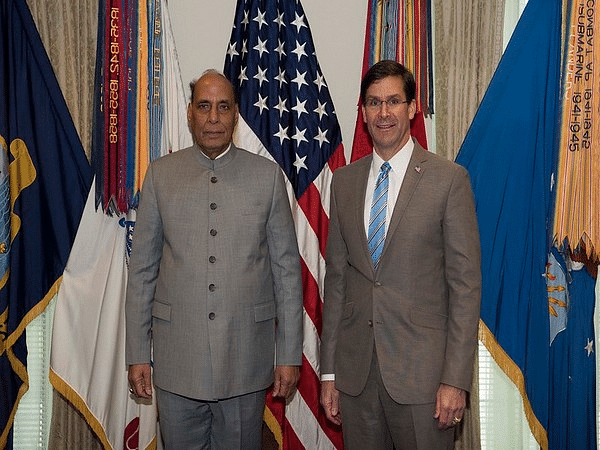New Delhi: India and the US plan to sign a significant pact, the Basic Exchange and Cooperation Agreement (BECA), for geo-spatial cooperation ahead of the 3 November US presidential elections.
The pact, which will enable the two countries to share military information and strengthen their defence partnership, is likely to be signed during the third round of 2+2 dialogue Tuesday.
US Secretary of State Michael Pompeo and Secretary of Defence Mark Esper to India will be in India on 26 October and 27 October for and hold talks with their respective Indian counterparts, External Affairs Minister S. Jaishankar and Defence Minister Rajnath Singh.
Background to BECA
The Indo-US dialogue will coincide with the Chinese Communist Party’s plenary session where President Xi Jinping will review critical policy decisions, such as his country’s next five-year plan.
Given rising India-China tensions following the death of 20 soldiers in Ladakh four months ago, the pact is seen to help India narrow the military gap with Beijing. News about the agreement drew sharp criticism from Chinese government mouthpiece Global Times, which remarked earlier this month that “New Delhi…hopes to showcase its military muscle to China, flaunting the importance of US connections”.
India and the US have already signed three key foundational agreements — General Security of Military Information Agreement (GSOMIA) in 2002, the Logistics Exchange Memorandum of Agreement (LEMOA) in 2016 and Communications Compatibility and Security Agreement (COMCASA) in 2018. These covered areas of security and military information, compatibility and security and logistics exchange and communications.
BECA has been under negotiations for over a decade as the UPA government was concerned about whether it would impact India’s national security. It was under the Manmohan Singh-led UPA government, however, that India ramped up defence procurements from the US. Over the past 13 years, the two countries have raked up defence deals worth $20 billion.
Also read: India should remove Chinese firms Huawei, ZTE from 5G & other ICT networks, US official says
What is BECA?
The Basic Exchange and Cooperation Agreement (BECA) for geo-spatial cooperation is essentially a communication agreement proposed between the National Geospatial-Intelligence Agency of the US Department of Defence and the Ministry of Defence of the Government of India.
It will allow India and the US to share military information including advanced satellite and topographic data such as maps, nautical and aeronautical charts and geodetic, geophysical, geomagnetic and gravity data.
Most of the information shared will be unclassified. However, the pact includes a provision of sharing classified information with safeguards to prevent it from being shared with any third party.
What will India gain?
The BECA will allow US armed forces to provide advanced navigational aids and avionics on US-supplied aircraft to India.
Sharing geospatial intelligence with the US through BECA will boost the Indian military’s accuracy of automated hardware systems and weapons like cruise missiles, ballistic missiles and drones. Also, it is a key step for India when it comes to acquiring armed drones such as MQ-9B from the US.
Amid India-China border standoff, Washington has recently approved arms sale to Taiwan, which too is witnessing rising tensions with Beijing as China’s Communist Party — which claims democratically-run Taiwan as part of its territory — has steadily increased its diplomatic and military pressure on it.
BECA is to help India and the US counter growing Chinese influence in the Indo-Pacific region.
The two countries have also been ramping up engagement with Australia and Japan — two other members of the ‘Quad’.
India pulled out of the ASEAN-led trade Regional Comprehensive Economic Partnership (RCEP) last November and in May this year, citing concerns over China.
Also read: Trump or Biden? Doesn’t matter to India-US ties as they’re in a full, strategic embrace



